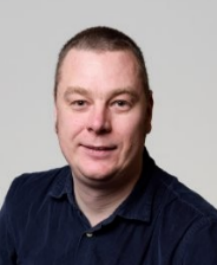Prof. Dr. Edwin Zondervan

Prof. Edwin Zondervan
The Institute for environmental science and Technology of Bremen University, Germany
Title: Balancing costs, safety and CO2 emissions in the design of hydrogen supply chains
Abstract: Hydrogen production is regarded as a promising option for long-term storage of excess renewable energy especially in fuel cell applications for transportation. A successful hydrogen supply chain (HSC) is safe, cost efficient and has a low environmental impact.
In this presentation a novel strategy for the design of a HSC network for Germany is presented for minimum daily supply costs, minimum mitigation costs of CO2 and maximum network safety. The aim is to identify the best hydrogen infrastructure pathways while taking into account local factors such as the location of the hydrogen supply and demand, and distribution between the hydrogen production location and hydrogen demand points.
For practical reasons, Germany is divided in 16 regions. The total hydrogen demand is estimated based on the fuel cell vehicle penetration into consumer market. The main consumers are households, where each household may have more than one vehicle. The location of the energy source procurement, the hydrogen production form (liquid or gas), the number and the location of production facilities, storage options and the delivery of hydrogen to consumers for a given demand are considered. Two types of technologies to produce hydrogen are evaluated namely coal gasification and water electrolysis.
The proposed model is a mixed integer linear program that is solved with the Advanced Integrated Multidimensional Modeling System (AIMMS). The model is solved as a multi-criterion decision making problem. We balance three objectives (costs, safety and environmental impact). A three dimensional pareto front is created using the epsilon constraint method. The sampling grid of this three-dimensional window is created by a surface response methodology.
Biography: Edwin Zondervan was born and raised in Leeuwarden, the Netherlands. After finishing his bachelor with a specialization in process automation in Leeuwarden he continued in Groningen with a M.Sc. in chemical engineering. Then he moved to Enschede and pursued a Ph.D. on modeling, optimization and control of dead-end membrane filtration of surface water. He defended his doctorate at Groningen in 2007. He worked from 2007 to 2015 at Eindhoven University of Technology as assistant professor in the field of PSE, supporting the separation technology group and the polymer reaction engineering group. Since 2015 Edwin Zondervan works at the Institute for environmental science and Technology of Bremen University, where he obtained a professorship in “Process Systems Engineering”. The Laboratory of Process Systems Engineering (PSE) at Bremen University (which was established within Bremen’s Excellence Initiative) conducts research in the field of sustainable and flexible system design of energy networks. The teams has grown significantly and currently holds around 14 members (mainly Ph.D. candidates).
The main objective of the laboratory of PSE is to develop network modeling techniques and dynamic optimization tools and to apply them to the design and operation of complex energy/process systems. The PSE group distinguishes two working areas: i) Novel energy technologies and devices and ii) Energy Efficient production. Where the challenges lie in 1) decisionmaking under uncertainty, 2) sustainable design and 3) managing complexity. In addition the PSE group has actively contributed to the setup of the Advanced Energy Systems Institute at Bremen University which executes a interdisciplinary research- and educational program within the faculty of Production Engineering. Edwin is the vice chair of the EFCE’s working party on CAPE (Computer Aided Process Engineering) and a delegate at QbD (Quality by Design). Besides research Edwin Zondervan has been very active in the educational gremials where he trained many generations of (bachelor, master and doctorate) students in process design, process control and numerical methods. For the latter one Edwin published a textbook that was released in 2014: “A numerical primer for the chemical engineer” (now be reprinted in a second edition) . At the end of 2019 Edwin will publish a new textbook at the Gruyter titled “Product driven process design – from molecule to enterprise”. Over the last years Edwin has published more 100 papers and proceedings (h-index 13).